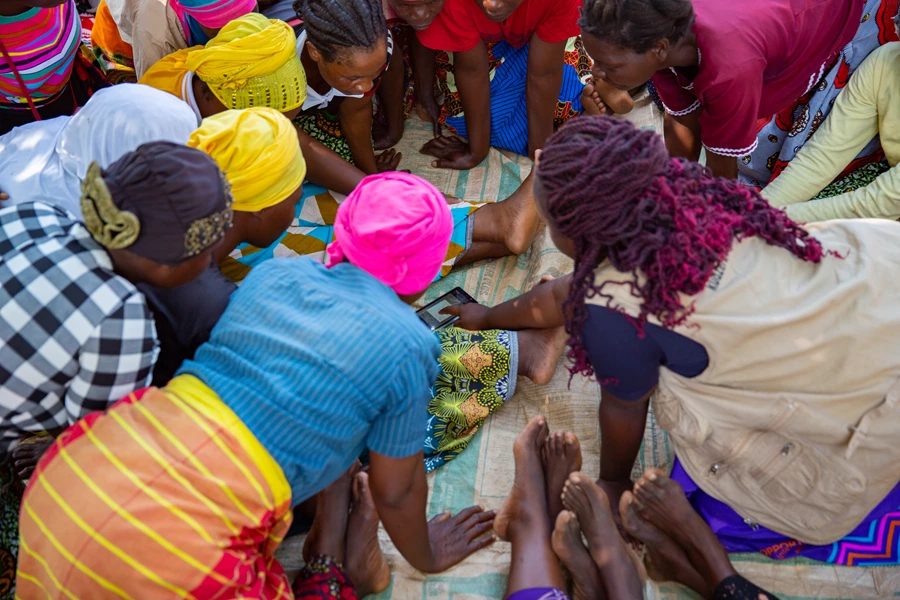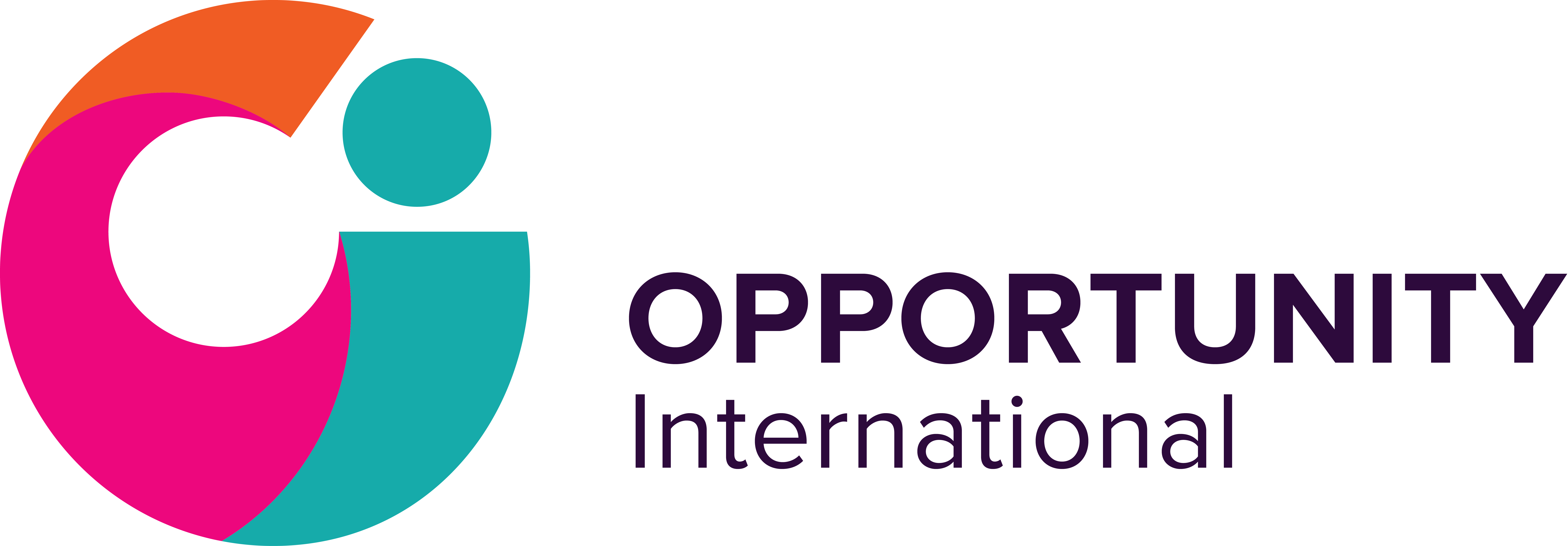Financial Inclusion
Through our financial inclusion programming, JOA aims to reduce poverty and increase resilience through the availability and use of financial services.
There are currently 1.4 billion unbanked adults worldwide and over 90% of these people live in developing countries. Evidence shows that when people have access to useful and affordable financial products and services - including money transfers, payments, savings, credit and insurance - everyone benefits. Greater financial inclusion means that people save more; spend more on healthcare and education; start and invest in enterprises which leads to job creation; and weather unexpected shocks.
Our Financial Inclusion programme targets poor and marginalised groups in our six target countries, with a particular focus on empowering women and on improving the efficiency and profitability of agricultural value chains. Projects will seek to improve access and usage of formal and informal financial services, including through the use of digital channels and the empowerment of communities and marginalised groups to develop financial literacy and financial capability. Some of the projects we support also seek to improve cooperation and capacity among policy makers, financial institutions, mobile network operators and other stakeholders responsible for delivery and overseeing financial services.

Current Financial Inclusion Grants
| Agency | Programme | Country | Value | Start | End |
|---|---|---|---|---|---|
| Street Child | Loans for Learning: Radical Financial Inclusion Initiative for Sierra Leone | Sierra Leone | £1,149,830 | 2024 | 2027 |
| FINCA INTERNATIONAL | Transforming the financial inclusion ecosystem for the Bottom of the Pyramid | Zambia, Malawi | £1,499,952 | 2024 | 2027 |
| Accion International | Increasing Inclusion & Resilience for Vulnerable Ethiopian Women | Ethiopia | £1,461,000 | 2024 | 2027 |
| CBM UK | Financial Autonomy and Inclusion of persons with Disabilities through Agriculture 2 (FAIDA2) | Nepal | £1,133,000 | 2024 | 2028 |
| Opportunity International UK | Inclusive Finance for Agricultural Value Chains in Rwanda | Rwanda | £1,200,000 | 2023 | 2026 |
| Toronto Leadership Centre | Expanding Financial Inclusion Through Financial Stability | Sierra Leone, Zambia | £800,000 | 2023 | 2027 |
| Habitat for Humanity | CASH: Creating Access to Safe Housing - Building Financial Inclusion and Resilience for Women in Zambia | Zambia | £1,400,000 | 2023 | 2027 |
| Restless Development International | Ulemelero' - Live Well for Women’s Empowerment in Zambia | Zambia | £1,300,000 | 2023 | 2027 |
| Mercy Corps Europe | Financial inclusion for clean cooking access | Rwanda,Sierra Leone | £1,200,000 | 2022 | 2025 |
| Practical Action | Empowering Women Farmers with Digital Finance, Nepal | Nepal | £1,199,254 | 2022 | 2025 |
| Mercy Corps Europe | Resilience And Incomes for Smallholders through Digital Financial Services (RAISE-DFS) | Ethiopia | £1,200,000 | 2022 | 2025 |
| Financial Sector Deepening Zambia | Improving smallholder farmer resilience and productivity in Zambia | Zambia | £1,200,000 | 2021 | 2025 |
| Toronto Leadership Centre | Building Regulatory Capacity to Increase Access to Financial Services | Ethiopia,Rwanda | £1,200,000 | 2021 | 2025 |
| Access to Finance Rwanda | Access to Finance Rwanda Phase III- April 2021-March 2026 | Rwanda | £1,200,000 | 2021 | 2026 |
| Restless Development International | Financial Inclusion & Innovation Hub | Sierra Leone | £1,350,000 | 2025 | 2028 |
| CAFOD | Women and Girls FIRST (Financial Inclusion & Resilience Strengthening) in Sierra Leone II | Sierra Leone | £1,500,000 | 2025 | 2028 |
| Habitat for Humanity | HOMES Nepal: Housing Opportunities and Microfinance Empowerment Solutions | Nepal | £1,500,000 | 2025 | 2029 |

COUNTRY: Malawi
PARTNER: Opportunity International
DURATION: 2021 - 2024
Project in focus: Strengthening Systems for Financial Inclusion in Rural Malawi
The Challenge:
Malawi’s economy relies heavily on agriculture, supporting nearly 80% of livelihoods. Rural poverty is driven by low agricultural productivity, limited off-farm opportunities, and unstable economic growth. Financial inclusion is crucial for economic development but remains low among smallholder farmers, women, and youth. Barriers include affordability, proximity, eligibility, trust, low incomes, and financial literacy. Expanding inclusive finance could significantly boost agricultural productivity, small enterprises, employment, and household incomes, but banks often avoid rural areas due to high costs and perceived risks.
What is the Project Doing:
Malawi’s economy relies heavily on agriculture, supporting nearly 80% of livelihoods. Rural poverty is driven by low agricultural productivity, limited off-farm opportunities, and unstable economic growth. Financial inclusion is crucial for economic development but remains low among smallholder farmers, women, and youth. Barriers include affordability, proximity, eligibility, trust, low incomes, and financial literacy. Expanding inclusive finance could significantly boost agricultural productivity, small enterprises, employment, and household incomes, but banks often avoid rural areas due to high costs and perceived risks.
Outcomes:
In the last year, this project has made progress in strengthening both the supply and demand of formal financial services for marginalised and previously excluded rural populations. By the end of 2023, the project had delivered loan services to 6,326 rural people; 14,400 smallholder farmers had benefitted from both training and access to formal financial services to increase productivity; and 24,000 rural people had received training in financial literacy and business management.
“Everyone in the village now has access to finance and this has improved our living conditions. I manage to save around 2500 Kwacha weekly. Previously, it was impossible to save, as we did not have the appropriate infrastructure. I recently took a loan of 100 000 Kwacha. Part of it was used to buy cement to plaster my house, and some was used to buy farming inputs and food. This is all a part of my recovery plan after the cyclone hit and decimated my maize crop."
Sign up to our newsletter
Find out more about JOA, the work we do, forthcoming events and volunteering opportunities.


